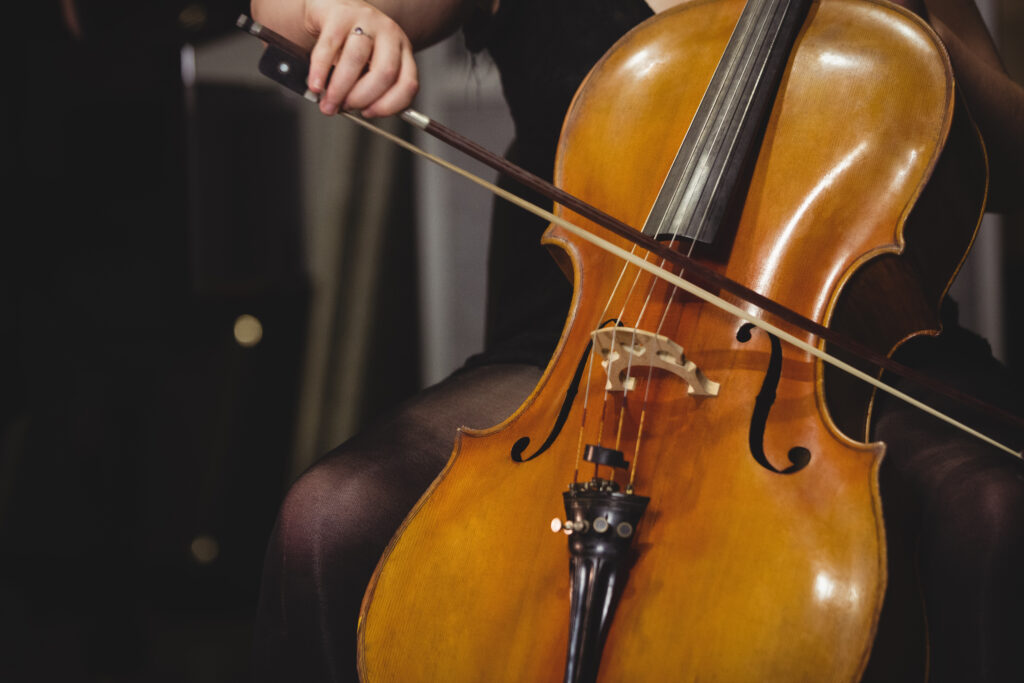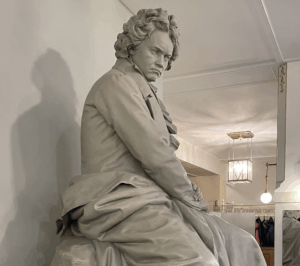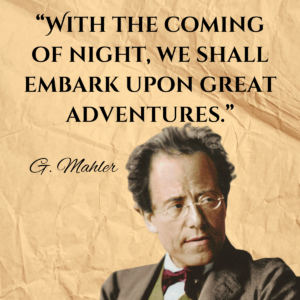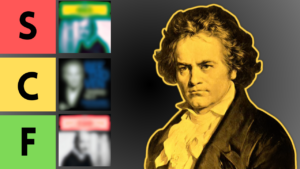The phrase “classical music is boring” might sound dismissive, even offensive, to some. But for many outside the concert hall, it’s a sentiment that feels all too real. That’s why there’s a growing number of conversations about how classical music fits into the modern world.
“Why is classical music boring” isn’t just a clickbait title — it’s a real cultural question. As Igor Stravinsky once said, “Too many pieces of music finish too long after the end.”
And maybe that’s the problem – classical music is full of ideas and concepts, but ordinary people might not want to — or simply don’t — understand them. From strict concert etiquette to the overall confusion around all these classical music terms and forms, it can feel more like homework than art.
But if classical music is really boring, why do people still get so deeply moved by it? And do you really need a conservatory degree to make sense of all those sonatas and symphonies? Let’s explore the real reasons why classical music sounds boring – and whether it has to be that way.

Subscribe to Classical Echoes Newsletter!
Your Expectations from Classical Music are Probably Wrong
In recent years, music, and art in general, has undergone dramatic and irreversible changes. In less than a century, dozens of new musical genres have evolved, and musical celebrities have seemingly come out of nowhere.
Generally, music pieces have become shorter and shorter with each passing decade, focusing more on lyrics and rhythm rather than musical depth and excellence. A chaotic modern culture and ongoing political tensions have only added to the decline of music’s elegance.
In light of this rapid cultural shift, the younger generation has grown up in a pretty disturbing environment, with so many completely unique musical genres to choose from.
Whether it’s jazz, rock, or just pop music, each genre serves a different purpose and has its own way of being appreciated. Rock focuses on strong rhythmic elements, while pop usually centers around lyrics and catchy melodies.
Because of this, it’s become harder – and more uncommon – to appreciate music for its own sake. These days, music rarely becomes popular unless it has expressive lyrics or a snappy rhythm. Music, in many cases, feels meaningless unless it’s accompanied by words.
But what classical music is really about is something entirely different – creating meaning through the music itself. The great composers of the past rarely used words to explain what their music meant.
Instead, they let instruments speak for themselves, and each listener would interpret the meaning in their own way. The composer’s main goal was to create a mood and evoke particular emotions, not to explain exactly what every note means.
Even though listening and interpreting music on your own sounds easy, in reality, it’s a quite intellectual entertainment. I personally find it hard to concentrate and really listen to music without distractions or wandering thoughts.
So when people come to a concert hall and start zoning out just a few minutes into the piece – that’s exactly the moment when the music dies. If you don’t follow the development of the main theme, you quickly get lost. Harmonies and the modulations stop making sense, and yes, the music becomes boring.
We often hear that classical music is so relaxing and beautiful, and many people think you can just let it wash over you to enjoy it. But in reality, classical music is more like intellectual entertainment.
Think of it like reading a book or watching some of Christopher Nolan’s movies. If you’re not fully focused, you lose the plot – and suddenly, all the scenes stop making sense. You get bored, not because the story is bad, but because you missed the thread.
It’s the same with classical music. Each Beethoven sonata or Bach fugue is a carefully crafted musical narrative that you have to follow. It’s not designed to be background music – so you can’t just “let it flow through you” the way you might with other genres.
The 1986 New York Philharmonic concert in Central Park had an estimate of 800,000 attendees
Old People's Music
The key reason classical music seems to be so inaccessible is that people often associate it with an old-fashioned elite and a relic of a past era.
A big part of the problem is how we frame classical music in the modern world. It’s got this reputation of being something for rich, old aristocrats – something you need deep expertise in to even begin to appreciate. And this is a big turn-off for many.
As Leo Bernstein once stated, “Classical music is for everybody. It’s not supposed to be an exclusive club.” But people still seem to be confused when it comes to classical music. Most of them don’t even know where to start.
However, the issue doesn’t lie in the music. It’s the way it’s performed, the setting – in other words, the vibe around it.
You sit still for two hours, you’re not supposed to clap between movements, and everyone’s dressed like they’re attending a 19th-century ball. This builds a very unfamiliar and unnatural atmosphere for most of us, and you don’t really feel like you fit in.
However, classical music wasn’t always this stiff. Not so long ago, in the 20th century, pianists like Horowitz, Cziffra, and Ashkenazy were treated just like modern-day celebrities. People were excited to hear performances of some of the fiery, almost unplayable Liszt pieces or monumental Mahler symphonies.
That energy, that excitement – it’s what made classical music so enjoyable and actually interesting. It was part of the cultural fabric. Even centuries after it was written, it had the same electrifying effect on listeners, and you don’t have to be royalty from the 18th century to experience it as well.
The problem now is that classical music gets typecast as “high art” for an elite crowd. People assume you have to be educated, wealthy, or, frankly, old to enjoy it. Sometimes all these musical terms simply confuse new listeners who are not familiar with the world of classical music.
However, what most people don’t realize is that there’s almost no difference between a classical composer and a modern musician. Neither Beethoven nor Chopin composed for their teachers or music critics. It was made, initially, for everyone to enjoy.
Classical music is not about flawless technique and making it overly complicated just to impress musicians and experts – it’s about when music speaks for itself. And it makes zero difference whether you’re a musical expert or just an art enthusiast seeking some of the most beautiful musical masterpieces.
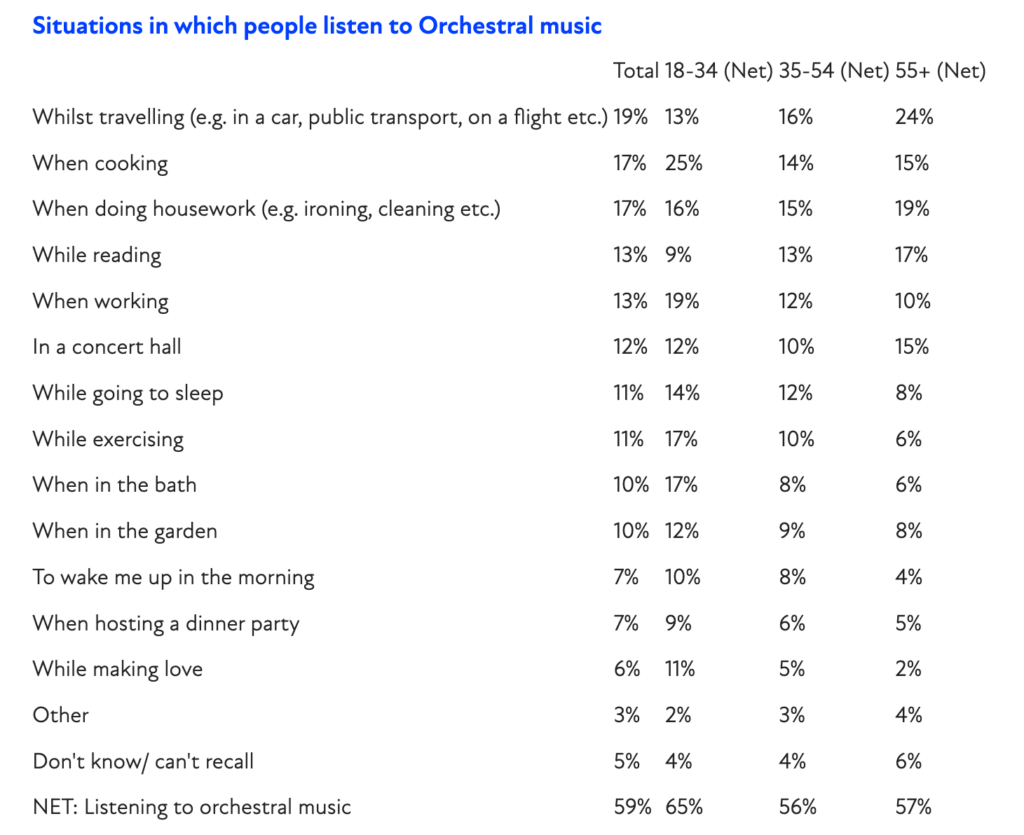
When do people listen to classical music (RPO)
How to understand classical music
So far, we’ve discovered that classical music is boring for many because it’s hard to understand its meaning. In fact, it’s a quite popular opinion that classical music can be enjoyable only for people with a musical background and proper tuition.
As with all major music genres, it actually all starts to make sense if you have some background in the genre, know some remarkable musicians, and are just familiar with its community and history. The same pattern applies to classical music, even though it is more complex than more recent genres.
In fact, it becomes so much easier and more exciting to listen to classical music if you just learn to recognize some basic musical terms. Most classical pieces are designed in a very well-structured and proportional way.
The key here is to be able to distinguish certain musical forms to really get the general idea of the whole piece. For example, you may need to make yourself familiar with the concept of a sonata and symphony – how it is structured and what each movement means, and so on.
The more you learn about basic musical ideas, the easier it becomes to listen. Knowing about popular music forms, great composers and their differences, and being able to distinguish different musical periods will help you become an actual listener – not just a casual attendee.
You start to gain expertise in why Beethoven’s and Mozart’s symphonies usually have four movements, how to listen to Bach’s fugues, and what’s the difference between Haydn and Ravel. The music starts to make sense for you, as you start to understand what it’s about.
As you progress, you may notice that a major part of classical pieces follows a structure similar to the storytelling of great novels from past and modern times. Music also has its parts like exposition, development, and culmination, which follow general narrative principles.
This means that classical music is strongly interconnected with different forms of art. So, in other words, if you grasp classical music, you’ll find yourself pretty decent at analyzing classical art in general – which lets you hold insightful conversations with smart and well-educated people.
L. Bernstein explains Beethoven’s music
Conclusion
The expression that classical music is boring may sound too bold and offensive. But in reality, it has its roots and is understandable. It has changed a lot from previous centuries, and it truly feels distant and incomprehensible for many of us.
This builds a stereotype that classical music is irrelevant today and definitely not designed for mass consumption. Life seems to have become so much busier and chaotic, that classical music carries a romantic meaning, and simply doesn’t fit with other styles nowadays.
However, I would look at it from a different perspective. Think of classical music as an event. Indeed, booking tickets months in advance for a great classical concert with a top orchestra and pianist is a special moment. And finally getting there feels like a milestone experience.
Classical music is definitely not for everyday listening, and the fact that you don’t see many people listening to it during work or lectures is totally reasonable. It requires your attention and focus, following the line and interpreting it in your own way.
It’s totally contrary to many modern songs, where the key role is lyrics and rhythm. If you look at Bach’s or Mozart’s masses and choral works, they hardly ever use meaningful texts and focus more on the musical component.
Classical music opens a wonderful world of sound, and with time and patience, the more pieces you discover, the more interesting it becomes. And what you thought was boring actually opens up a new meaning!

